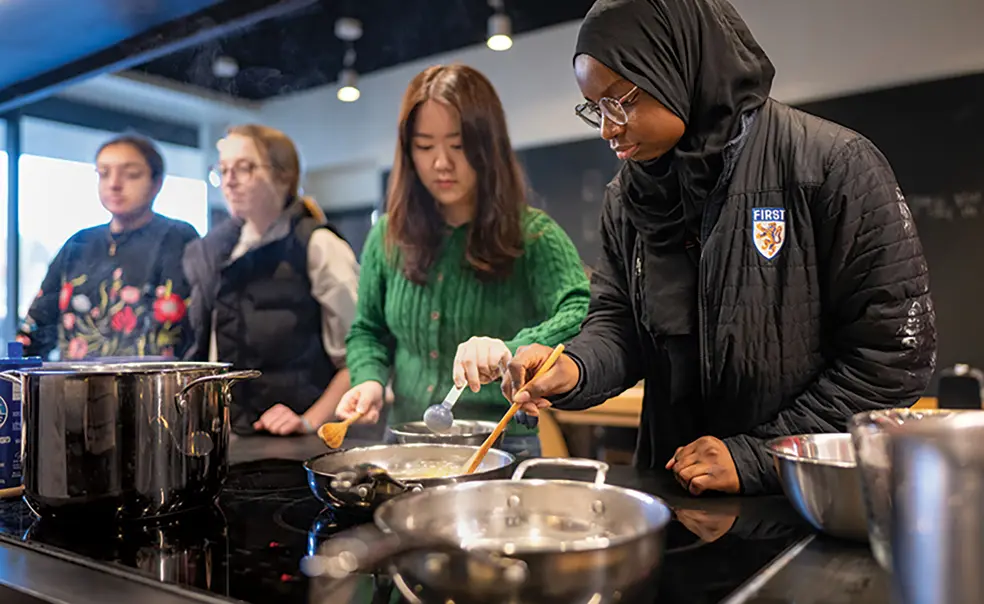Class Close-Up: Serving Up Culture and Justice with Food
On the first day of the spring semester, as students walked into the American studies course Food Culture and Food Justice, they were greeted not with introductions, but globs of pasta dough. While pots of broccoli rabe and sausage simmered on the stove of the long counter in the New College West test kitchen, Michael Peterson, an Anschutz Distinguished Fellow, offered a quick rundown on how to shape orecchiette, meaning “little ears.”
As more people arrived, Peterson walked around and offered simple instructions and critiques — “this looks good” and “even smaller than that” — but mostly left the students on their own to form ropes of dough and then use knives or their thumbs to make six sheet pans worth of orecchiette. As they worked, students asked each other about their majors, hometowns, and favorite sports teams.
“It was definitely a good way to start to talk to people in the class and break the ice, and everyone was not really sure what they were doing, so it was really fun,” said history major Maggie Liebich ’24.
Peterson and co-instructor Laurie Beth Clark, also an Anschutz Distinguished Fellow, are professors at the University of Wisconsin-Madison, and since 2008, have regularly collaborated on what they call “social practice art,” traveling the world intertwining art and food under the moniker Spatula&Barcode.
“We often make events that look like other things. You might mistake it for a dinner party or a banquet or a parade,” said Peterson, rather than interactive artwork and scholarship. “We don’t make a real strong distinction between making our art projects and making a class that’s organized around food.”
Every Monday afternoon, the class, which is new to Princeton, cooks and then eats while discussing the landscape and meaning of food in America and around the world, as well as food justice and activism.
Clark hopes students gain “an understanding about the way that food culture and food justice are tied up with each other — it’s intricate and multifaceted,” and Peterson emphasizes the connections “between the food that’s on our plate and broader political issues, social structures, and so on.”
Throughout the semester, students will be sharing and cooking recipes connected to their culture, heritage, or family.
Liebich shared her grandmother’s shrimp canape recipe, which her family eats “every single holiday” and is “a big part of the predinner experience.”
Students are also expected to write two papers and a final reflection, make two presentations, and participate in at least one “food justice action,” which Clark said could take many forms, such as working at a food bank or performing a play.










No responses yet